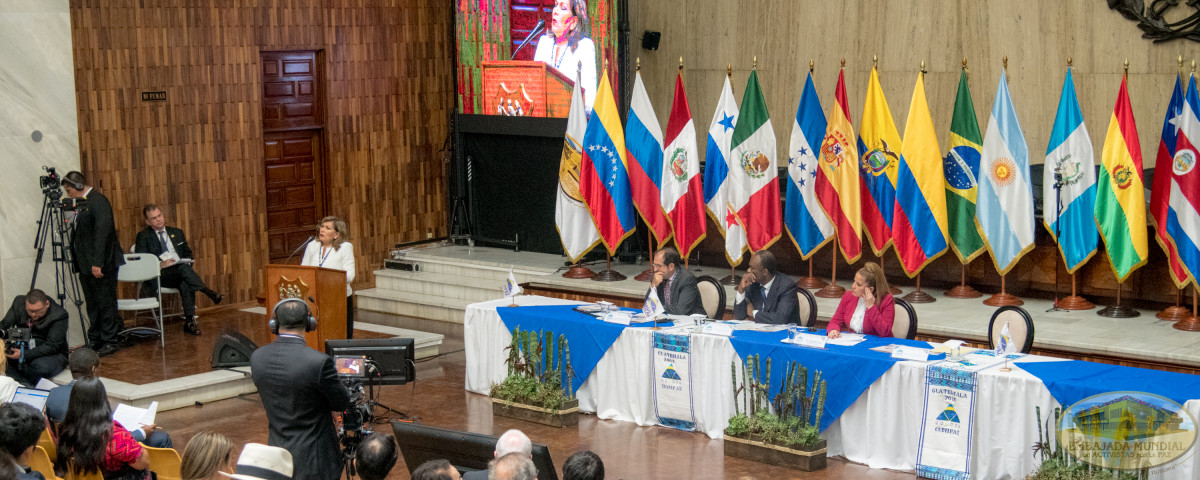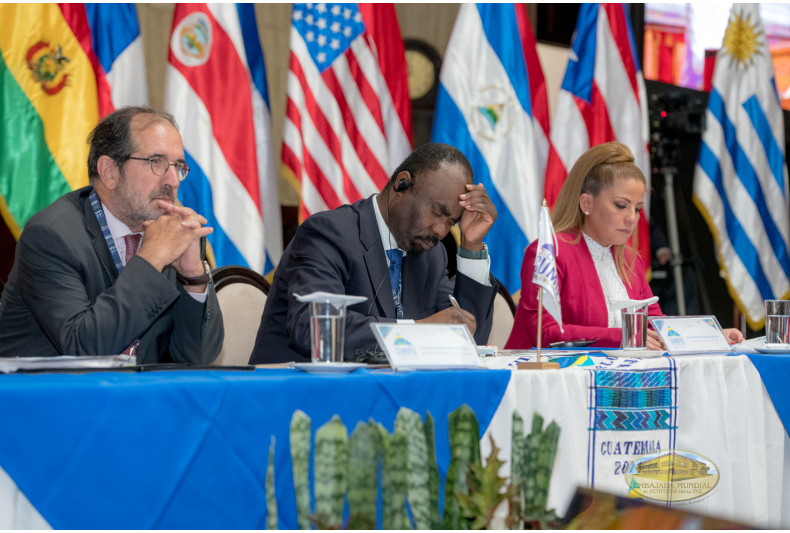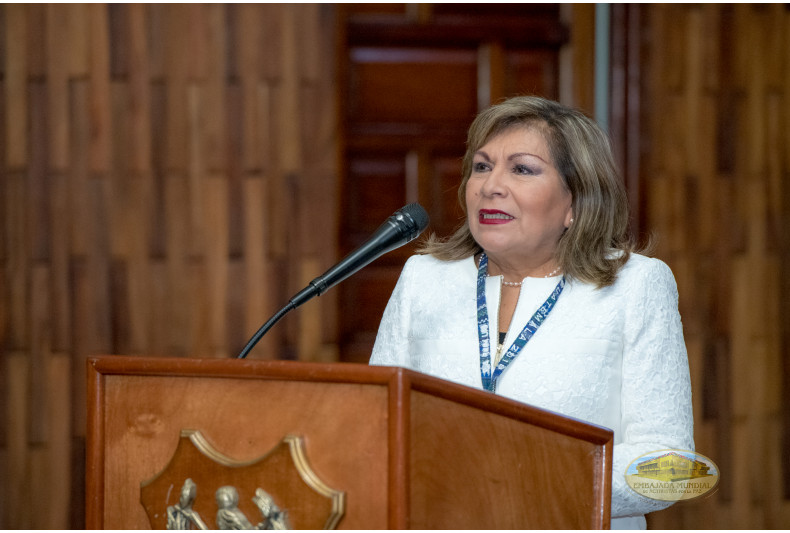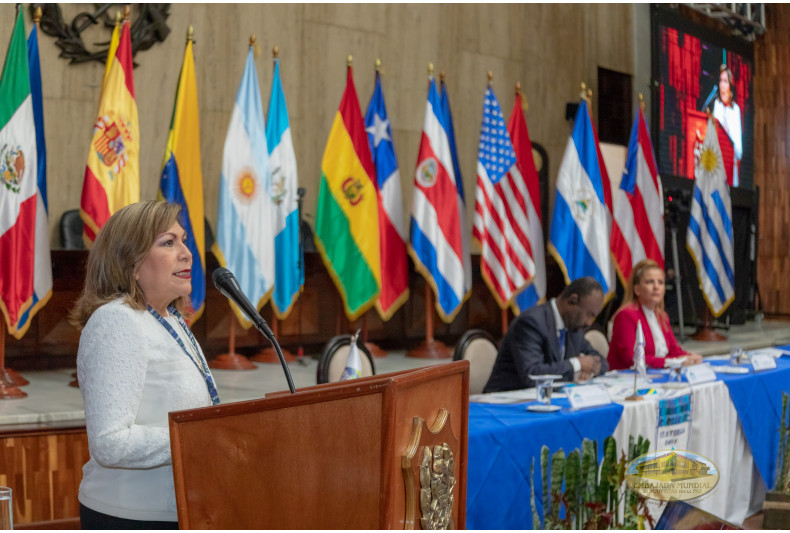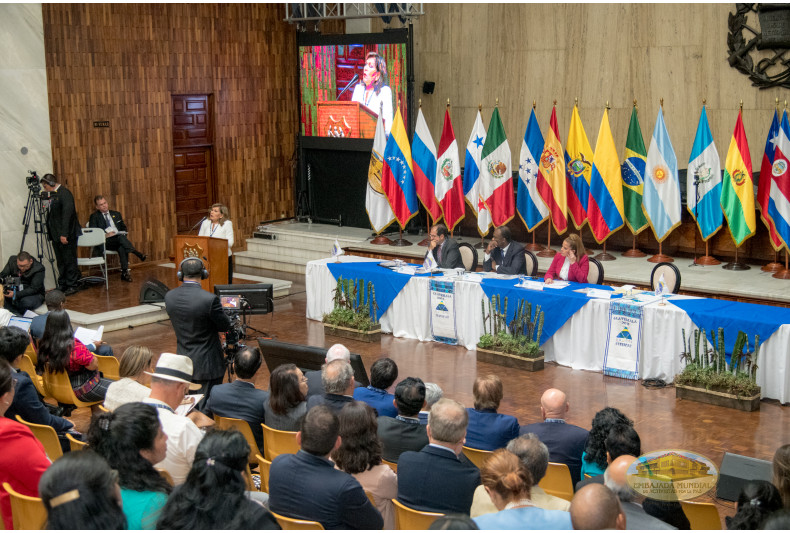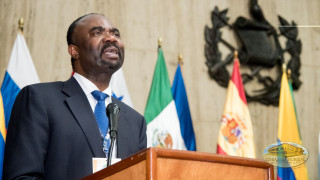Proposal to empower the Spanish language in the International Criminal Court
See Gallery
In the development of the 5th day of the Summit of Integration for Peace, CUMIPAZ Guatemala 2018, the judge of the International Criminal Court (ICC), Luz del Carmen Ibáñez Carranza, presented the keynote address "The International Criminal Court, a long way from Nuremberg to the present time, reflections and messages", during the Justice and Democracy Session.
The judge stated that, although the International Criminal Court and the Rome Statute declare in their preamble that Spanish is one of the languages belonging to the Court, and despite being one of the most spoken languages in the world, this precept is not effective because there are no Spanish interpreters in Court.
"I am proposing, in an official and formal manner, that the Court provide a space to empower the Spanish language as a vehicle to do this positive complementation to and fro between the Court and the national jurisdictions of America, and as a vehicle also to empower the Court, "said Ibáñez.
The proposal works hand in hand with positive complementarity, another initiative that the lecturer raises as a contribution so that the Court can work and enhance its effectiveness. Complementarity refers to the rapprochement between the Court and national jurisdictions, as can be understood in the preamble to the Rome Statute.
"It is the national jurisdictions that, in the first place, have the right and the obligation to judge their nationals. But how? The Court has advanced a lot, but that knowledge, that wisdom, those decisions, have to bring them closer to national jurisdictions."
Emergence of the ICC
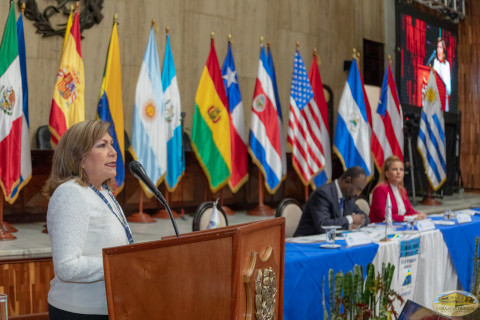 Judge Luz del Carmen Ibáñez, made a recount of the creation of the International Criminal Court after demonstrating the great horrors committed in Germany and other places in the world during the Second World War; this allowed the Nuremberg Statute to be signed in 1948 initially.
Judge Luz del Carmen Ibáñez, made a recount of the creation of the International Criminal Court after demonstrating the great horrors committed in Germany and other places in the world during the Second World War; this allowed the Nuremberg Statute to be signed in 1948 initially.
At the same time, the convention for the prevention and punishment of the crime of genocide was signed, which encouraged countries to pursue these very serious atrocities, such as the crime of genocide, committed in the Jewish Holocaust.
According to the judge, thereafter, the international community experienced moments of reflection, in which it was intended to form the idea of a large court or a large criminal court with independent judges who are only due to the law, to the Statute of Rome and the State of International Law.
Finally, in 2002, the International Criminal Court was conceived with the purpose of ending the impunity of the most serious crimes and atrocities committed in the world and threatening the peace among the nations.
There are four crimes that the International Criminal Court judges:
1. Crime of genocide: that which is constituted when actions are taken to destroy or disappear a human group, whether for ethnic, political, religious or other analogous reasons;
2. Crimes against humanity: those acts typified in murders, enforced disappearances, torture or others;
3. War crimes: also constituted by aggressions to the human being that occur precisely in the context of armed hostilities or armed conflicts;
4. Crime of aggression: those crimes committed mainly by heads of government or armed leaders who use illegitimate force against another country or against another political entity.
As final conclusions, the judge emphasized that one of the fundamental pillars of a lasting and sustainable peace is justice; but justice done right and well administered, that justice that beyond being only punitive or retributive, is also a restorative and invigorating justice.
